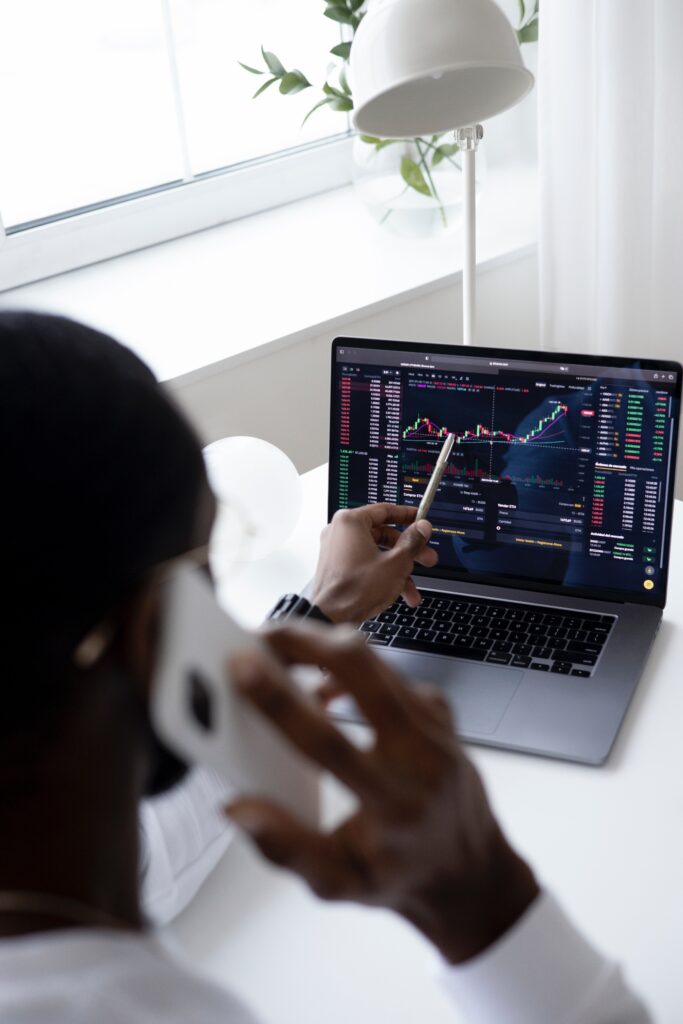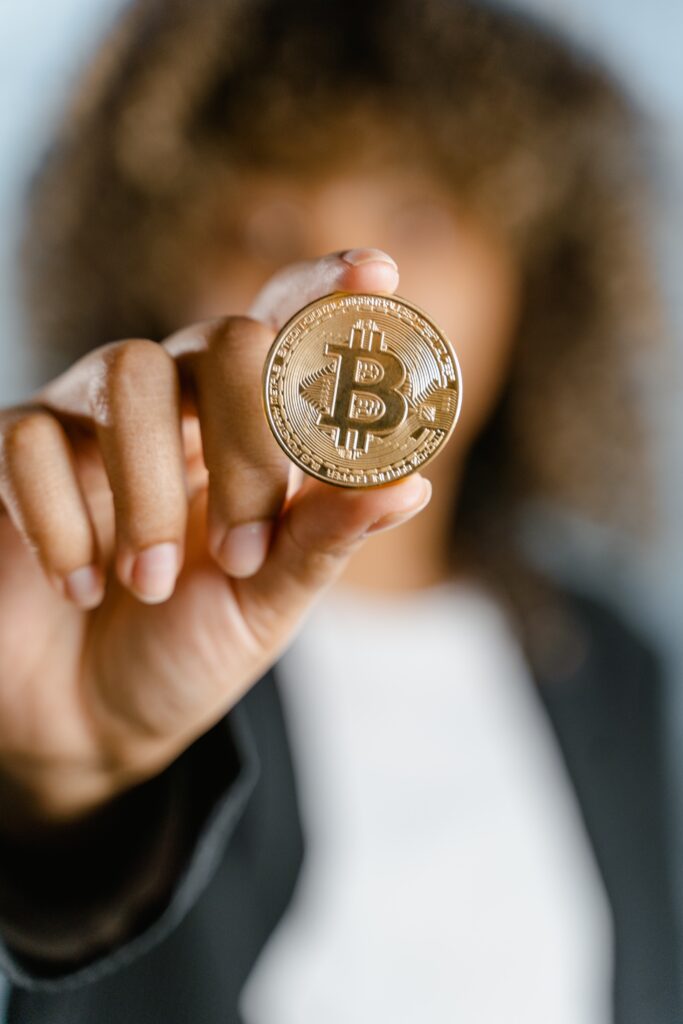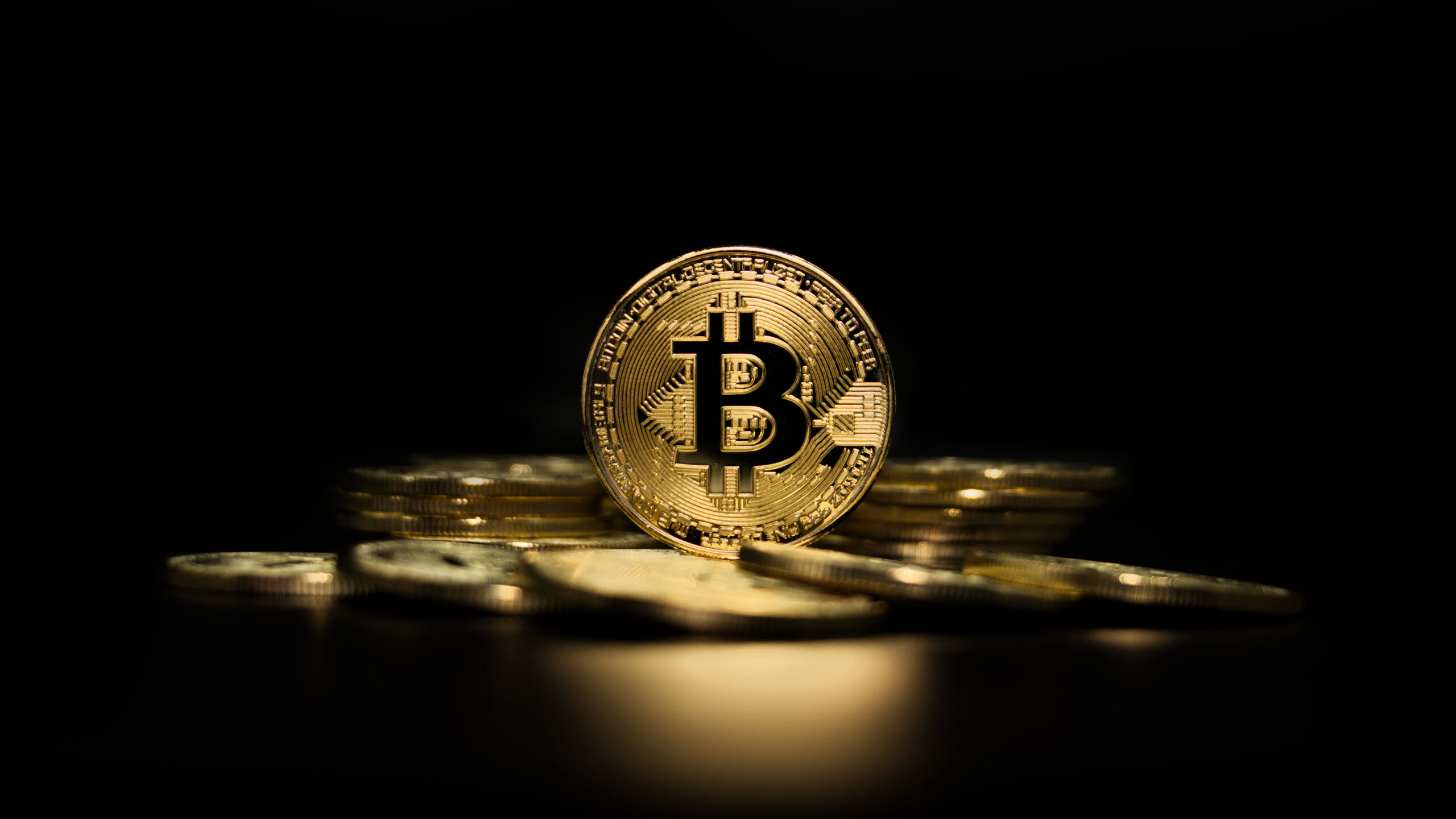In the world of the Internet and DMs (Direct Messages), at some point, you’re going to get someone to reach out to you to offer you a get-rich-quick scheme. It might appear in your email from a cute person stuck in Africa, who just so happens to have tons of money that needs to be transferred. You might get a message from Aunt Helen on Facebook asking you if you heard of the new stimulus that the government is doing. And finally, it might be someone texting you on Instagram that if you invest $3,000 with them in bitcoin, it will turn into $45,000 in ninety days.
The question for anyone who works a real job, with real bills, is: Can you afford to invest in an unproven endeavor without having done your homework?
The answer for some might be yes, and the answer for others might be no. Depending on what you make, how you save, and how you earn will help answer the question. But Blacks must make good decisions with their money if they’re going to continue to create generational wealth for their families.
“The short answer is there is no such thing as a get-rich-quick scheme,” John Graves said. “As a financial investor, I have seen tons of people lose good money going after bad ideas.”
The latest trend is investing in cryptocurrencies. It started before the pandemic and picked up steam as people learned that they could invest, get their friends to invest, and win healthy returns quickly. However, the industry of crypto is largely unregulated, and very little is known about the process to protect your investment.

Two years ago, crypto had a huge tail win of success. Its value skyrocketed to about $45,000 per share. Everyone seemed bullish on it. Companies began to accept crypto as payment and it made young people wealthy very quickly.
But not everyone sang its praises. Forty-two countries, including Algeria, Bahrain, Bangladesh, and Bolivia, have implicitly banned digital currencies by putting restrictions on the ability of banks to deal with crypto or prohibiting cryptocurrency exchanges, according to a 2021 summary report by the Law Library of Congress published in November.
In America, the ability to deal in crypto is a personal choice. Crypto is a high-risk investment. The value of crypto is quite volatile, often fluctuating by huge amounts within a short period. More than with any other investment, you must be prepared to lose what you invest in. The $45,000 value in 2021 is now down to less than $16,000 and falling.
Financial experts typically advise against investing more money into cryptocurrency than you’re willing to potentially lose since there’s no guarantee of earning a profit.
And that’s the problem: earning a profit. Because of high priced volatility, there could be issues related to who bears the risk if the value declines rapidly between when a payment is due, made, and ultimately received. Employees compensated in crypto would have to report it on their taxes, which would be more complicated than reporting traditional payments.
The tax implications of being involved with cryptocurrencies are still unknown and working to redeem active funds still committed is getting harder and harder. Those who tried to pull their money from their crypto exchange found it very difficult to get their money back further exposing them to more losses.
“After I heard about the guy from FTX, I decided to get my money back, but they would answer my calls, my emails, or anything. So, I continued to lose money as the price sank,” said Sharon. “If I had it to do over again, I would have never invested.”
While there are several factors influencing crypto prices, the recent one is certainly the FTX-Binance dispute. FTX, one of the major crypto exchanges, is facing collapse. The eminent FTX crash has affected the entire market along with major currencies like BTC, a form of Bitcoin, which has fallen more than 70 percent.

The rising interest rates have been the biggest culprit behind last year’s crypto crash, as well as why BTC is going in the red lately. Since the pandemic, the US and other parts of the world have been witnessing record-high inflation resulting in price hikes.
This macro-factor, along with all the scams associated with dealing in crypto, has led to over 65 percent of Americans polled feeling some anxiety about getting involved in the industry.
“I’m not going to take my money and just put it with some stranger who calls me out of the blue,” Frank said. “I am going to stick with some of the proven methods of investing. It might take me longer to grow my money, but at least I know it’ll be safe.”
As 2023 begins, who knows what the trends in investing will be? There is one thing for certain, no one has any money to lose. Invest wisely and always consult a licensed professional whenever possible.
In the world of the Internet and DMs (Direct Messages), at some point, you’re going to get someone to reach out to you to offer you a get-rich-quick scheme. It might appear in your email from a cute person stuck in Africa, who just so happens to have tons of money that needs to be transferred. You might get a message from Aunt Helen on Facebook asking you if you heard of the new stimulus that the government is doing. And finally, it might be someone texting you on Instagram that if you invest $3,000 with them in bitcoin, it will turn into $45,000 in ninety days.
The question for anyone who works a real job, with real bills, is: Can you afford to invest in an unproven endeavor without having done your homework?
The answer for some might be yes, and the answer for others might be no. Depending on what you make, how you save, and how you earn will help answer the question. But Blacks must make good decisions with their money if they’re going to continue to create generational wealth for their families.
“The short answer is there is no such thing as a get-rich-quick scheme,” John Graves said. “As a financial investor, I have seen tons of people lose good money going after bad ideas.”
The latest trend is investing in cryptocurrencies. It started before the pandemic and picked up steam as people learned that they could invest, get their friends to invest, and win healthy returns quickly. However, the industry of crypto is largely unregulated, and very little is known about the process to protect your investment.
Two years ago, crypto had a huge tail win of success. Its value skyrocketed to about $45,000 per share. Everyone seemed bullish on it. Companies began to accept crypto as payment and it made young people wealthy very quickly.
But not everyone sang its praises. Forty-two countries, including Algeria, Bahrain, Bangladesh, and Bolivia, have implicitly banned digital currencies by putting restrictions on the ability of banks to deal with crypto, or prohibiting cryptocurrency exchanges, according to a 2021 summary report by the Law Library of Congress published in November.
In America, the ability to deal in crypto is a personal choice. Crypto is a high-risk investment. The value of crypto is quite volatile, often fluctuating by huge amounts within a short period. More than with any other investment, you must be prepared to lose what you invest in. The $45,000 value in 2021 is now down to less than $16,000 and falling.
Financial experts typically advise against investing more money into cryptocurrency than you’re willing to potentially lose since there’s no guarantee of earning a profit.
And that’s the problem: earning a profit. Because of high priced volatility, there could be issues related to who bears the risk if the value declines rapidly between when a payment is due, made, and ultimately received. Employees compensated in crypto would have to report it on their taxes, which would be more complicated than reporting traditional payments.
The tax implications of being involved with cryptocurrencies are still unknown and working to redeem active funds still committed is getting harder and harder. Those who tried to pull their money from their crypto exchange found it very difficult to get their money back further exposing them to more losses.
“After I heard about the guy from FTX, I decided to get my money back, but they would answer my calls, my emails, or anything. So, I continued to lose money as the price sank,” said Sharon. “If I had it to do over again, I would have never invested.”

While there are several factors influencing crypto prices, the recent one is certainly the FTX-Binance dispute. FTX, one of the major crypto exchanges, is facing collapse. The eminent FTX crash has affected the entire market along with major currencies like BTC, a form of Bitcoin, which has fallen more than 70 percent.
The rising interest rates have been the biggest culprit behind last year’s crypto crash, as well as why BTC is going in the red lately. Since the pandemic, the US and other parts of the world have been witnessing record-high inflation resulting in price hikes.
This macro-factor, along with all the scams associated with dealing in crypto, has led to over 65 percent of Americans polled feeling some anxiety about getting involved in the industry.
“I’m not going to take my money and just put it with some stranger who calls me out of the blue,” Frank said. “I am going to stick with some of the proven methods of investing. It might take me longer to grow my money, but at least I know it’ll be safe.”
As 2023 begins, who knows what the trends in investing will be? There is one thing for certain, no one has any money to lose. Invest wisely and always consult a licensed professional whenever possible. ●


